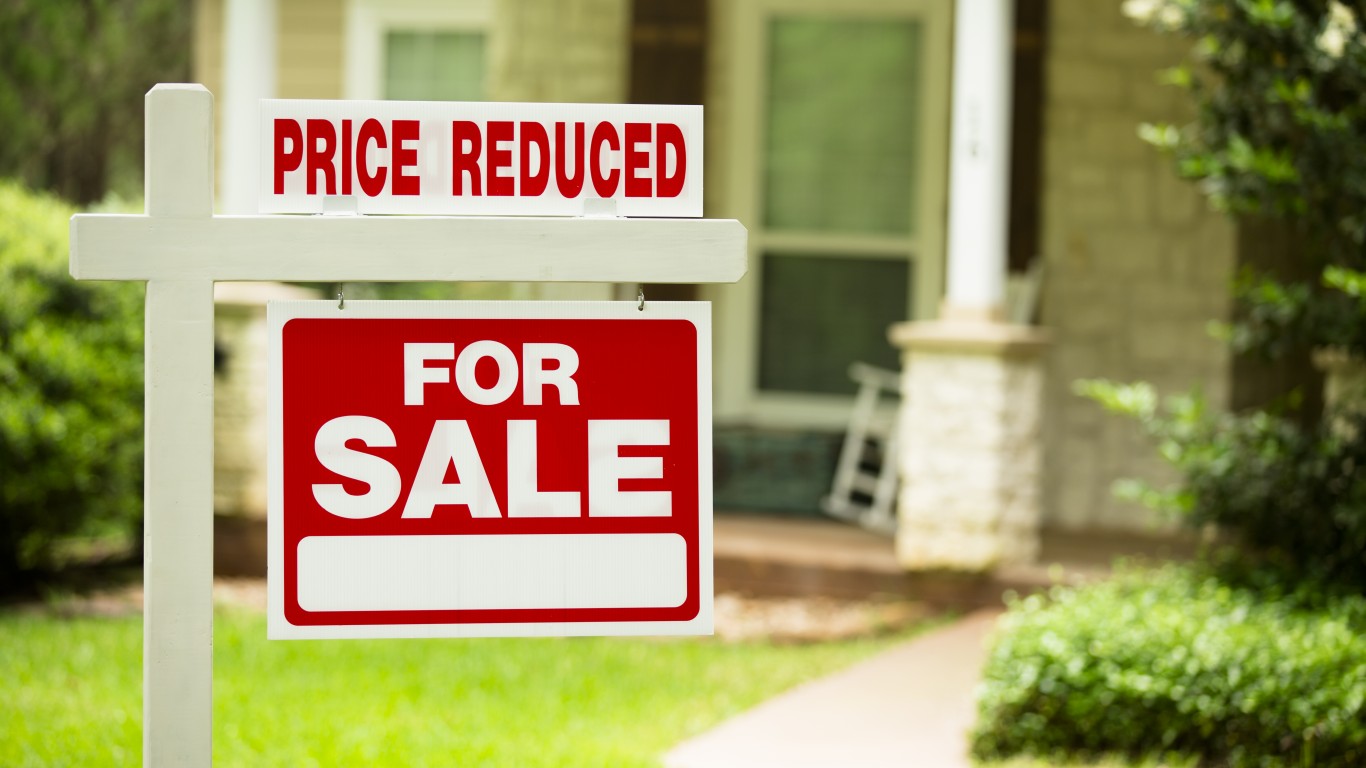

A recession could render the U.S. economy troubled. What trigger could begin it? For one, the way your home price may fall.
The real estate value surge, part of the rise in gross domestic product for two years, will end soon. Improved home equity has helped fuel optimism and consumer spending. Americans may feel poor as that equity decreases and the opportunity to profit from home sales fades each month.
[in-text-ad]
Home prices have climbed due to low interest rates, as well as a mobile population arising from “work at home” options created by the new COVID-19 economy.
High interest rates produce high mortgage rates. Today, they are well above 5% and rising. A year ago, they were below 3%.
The median price of an existing home nationwide has risen above $350,000 for the first time. Consider that jump as about 20% year over year. That, in turn, creates a better value of $50,000. People with mortgage rates well below $300,000 have money “money in the bank.”
The core of the Great Recession originated with a collapse of home prices. Americans felt poor as the size of mortgages dropped below home equity values. This triggered mortgage defaults. The dominos fell further, as mortgage defaults led to evictions, and areas with high eviction rates lost any appeal they might have to buyers.
Consider your home’s price. If it has made your “bank account” more valuable, your feelings about the economy could be very positive. Within a few months, that could change entirely. Based on your location, that worry could be high.
People look at their finances differently based on savings, frugality and income. Income and frugality will not disappear for money. Home prices, often considered as savings, may erode.
Take This Retirement Quiz To Get Matched With A Financial Advisor (Sponsored)
Take the quiz below to get matched with a financial advisor today.
Each advisor has been vetted by SmartAsset and is held to a fiduciary standard to act in your best interests.
Here’s how it works:
1. Answer SmartAsset advisor match quiz
2. Review your pre-screened matches at your leisure. Check out the advisors’ profiles.
3. Speak with advisors at no cost to you. Have an introductory call on the phone or introduction in person and choose whom to work with in the future
Take the retirement quiz right here.
Thank you for reading! Have some feedback for us?
Contact the 24/7 Wall St. editorial team.



